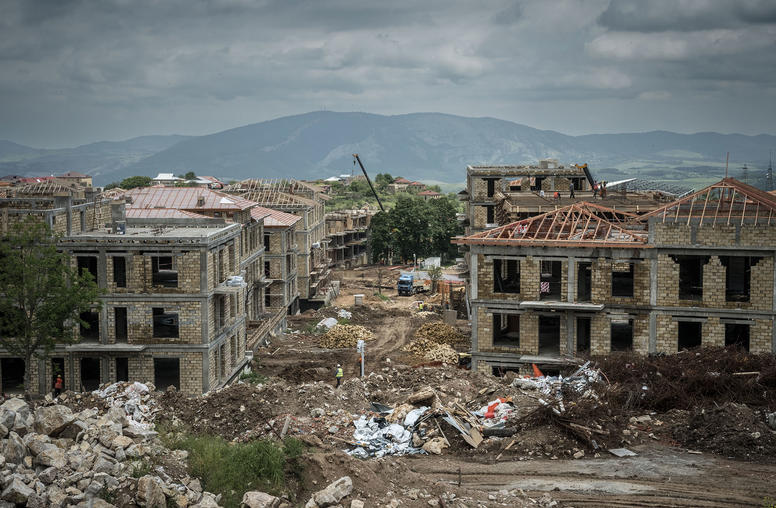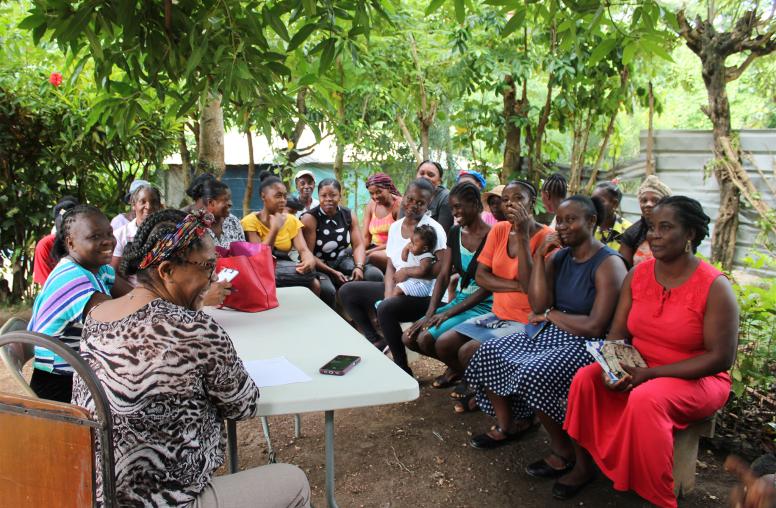 Haiti
Haiti
Since the pullback of the international assistance mission in 2017 followed by the assassination of its president in 2021, Haiti has suffered from a crisis of governance that has opened the space for criminal — but politically aligned — gangs to take over much of the country. USIP offers technical and secretariat support to national dialogue processes that will lead to a functional transitional government and guide the country to elections. It also works with experts to develop innovative security planning for Haiti that takes account of the tepid international support for the current crisis.
Featured Research & Analysis

How to Break Gangs’ Grip on Haiti
Since the assassination of President Jovenel Moïse in 2021, Haiti has spiraled into chaos, with gangs tightening their grip on nearly every aspect of daily life. Once a fragile but functioning state, the country now finds its capital, Port-au-Prince, almost entirely controlled by gangs — and their influence is spreading. A new U.N. report warns that the situation is more dire than ever, as armed groups extend their control into new territories, displacing communities and deepening the country’s humanitarian crisis. As of January over one million people are displaced, the majority of them children, major roads are impassable, and “5.4 million Haitians – nearly half the population – do not have enough to eat.”

Ki Sa Siksè Politik Etazini ta Dwe Sanble an Ayiti?
Apati kòmansman ane 2025 lan, Ayiti toujou ap soufri ak yon kriz nasyonal ki gen plizyè aspè ki prèske kraze gouvènans politik, sekirite ak estabilite ekonomik peyi a. Rezilta dezagreyab sa a fwistran, sètènman pou Ayisyen yo.

À quoi ressemble le succès de la politique américaine en Haïti?
Début 2025, Haïti est toujours en proie à une crise nationale multiforme qui a pratiquement démantelé sa gouvernance politique, sa sécurité et sa stabilité économique. Cette situation désastreuse est avant tout une source de frustration pour les Haïtiens eux-mêmes.
Current Projects

Peacemaking in a Turbulent World: Lessons from Intrastate and Interstate Conflicts
Peacemaking in a Turbulent World answers the following central question: What lessons for effective management of intrastate conflicts emerged from the post-Cold War period that are relevant for managing contemporary conflicts which include intrastate, internationalized (featuring direct engagement by outside powers), and interstate conflicts?

Haiti in Crisis
Haiti has been overrun by violent gangs after years of turmoil following the pullback of international troops in 2017 and the assassination of its president in 2021. Today, Haitians are experiencing a level of human suffering rarely seen on this side of the globe. Meanwhile, the effects of the Haitian crisis are felt across the Western Hemisphere — fueling more intense migratory flows from South and Central America and rising levels of weapons, drugs and human trafficking in the Caribbean.

Haitian Citizen Engagement
USIP’s Haitian Citizen Engagement Project ensures that marginalized communities, particularly in rural Southern Haiti, have a voice in the country’s political transition.